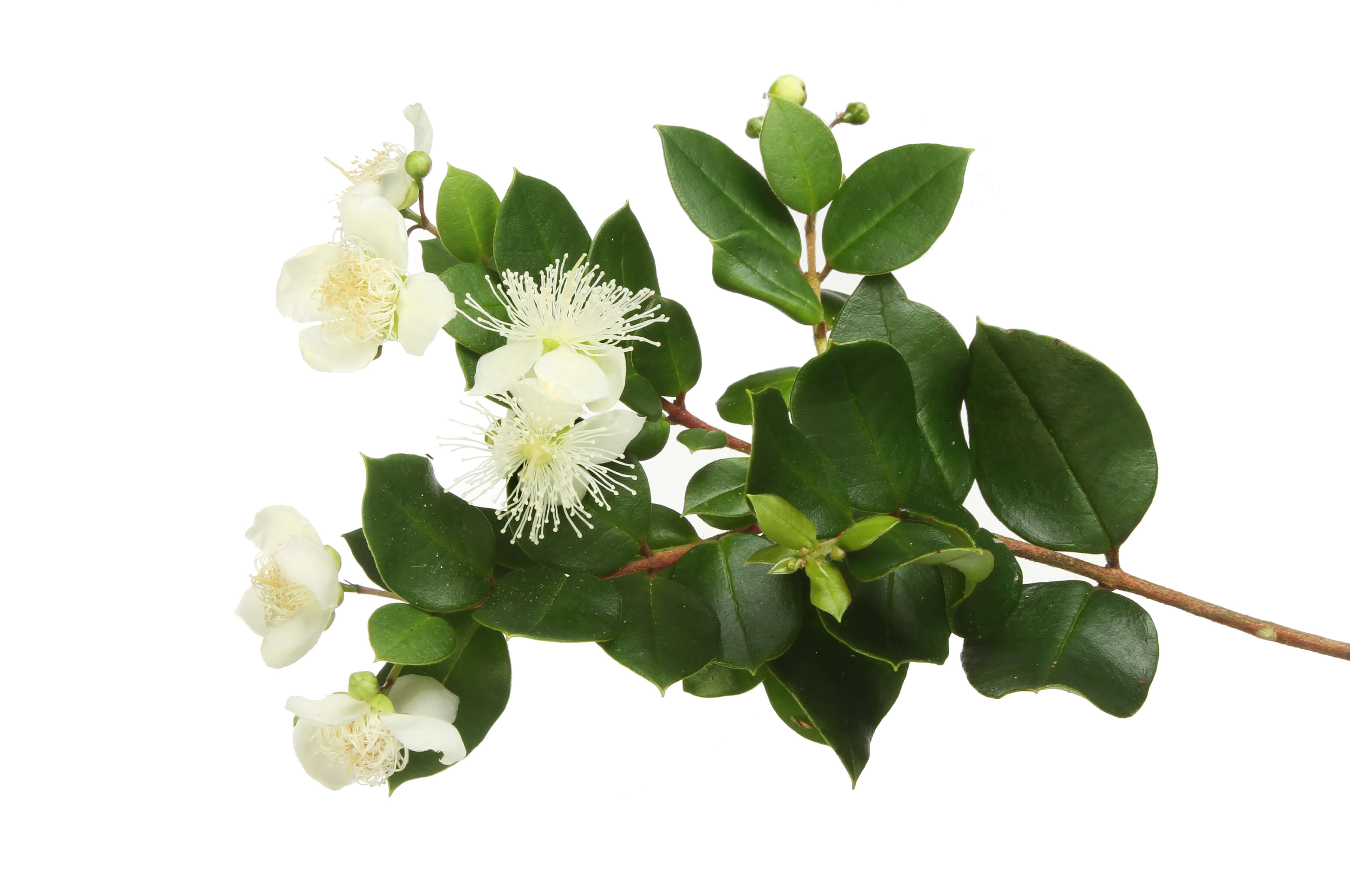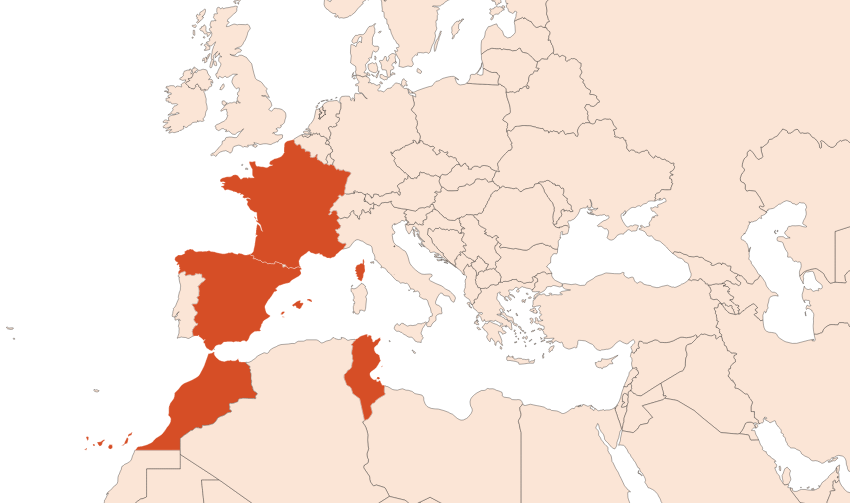
| Company | Ingredient Name | ID | Comments | Naturality | Certifications | Purity | Latin name | Treated part | Geographical origin | MOQ |
|---|---|---|---|---|---|---|---|---|---|---|
|
|
Huile essentielle de Myrte verte - 30 gr | - |
Visit website
|
- | - | - | - | - | - | |
|
|
MYRTE | P00627889000 |
Visit website
|
Huile essentielle | - | Myrtus communis L. | Feuille | Maroc | - | |
|
|
MYRTE | B665 |
Visit website
|
Huile essentielle |

|
- | Myrtus communis L. | Feuille | Maroc | - |
General Presentation
-
CAS N° : 8008-46-6
-
EINECS number : 282-012-8
-
FEMA number : Donnée indisponible.
-
Appearance : Colorless liquid
-
Density : 0,871 - 0,891 @20°C
-
Volatility : Heart
-
Price Range : Donnée indisponible.
Physico-chemical properties
-
Optical rotation : Donnée indisponible
-
Vapor pressure : Donnée indisponible
-
Refractive Index @20°C : Donnée indisponible
-
Acid Value :
-
Flash Point :
Uses
Uses in perfumery :
Data not available.
Major Components :
- For Eucalyptol chemotype :
- Alpha-Pinene (45-50%)
- Eucalyptol (20-25%)
- D-Limonene (5-7%)
- Linalol (2-5%)
- Geranyl acetate (2,5-5%)
- Myrtenyl acetate (<1%)
- For Myrtenyl acetate chemotype :
- Eucalyptol (20-40%)
- Alpha-Pinene (18-25%)
- Myrtenyl acetate (15-20%)
- D-Limonene (8-10%)
- Linalol (2-8%)
- Geranyl acetate (2,5-5%)

Photo credits: ScenTree SAS
Botanical name :
Myrtus communis L.
Synonyms : Myrtus boetica Mill. // Myrtus buxifolia Raf.
Botanical profile :
Myrtle is a shrub belonging to the Myrtaceae family (such as clove, eucalyptus or pepper) and to the genus myrtus.
Chemotypes :
Two chemotypes exist,
One with Eucalyptol (Green Myrtle HE) - Available in Tunisia, France (Corsica) and Lebanon
The other with Myrtenyl Acetate (Red Myrtle HE) - Available in Morocco and Yugoslavia
Beware, the name Lemon Myrtle does not botanically correspond to a species of the genus Myrtus, but rather to Backhousia citriodora. (Still in the Myrtaceae but nothing to do with Myrtus)
Extraction process :
This essential oil is obtained through hydrodistillation of the branches and twigs of the shrub. These are harvested between May and June of each year.
The extraction process results in a yield between 2 and 3% (about 1kg of EO for 800kg of plants) for a duration of about 1h30.
Myrtle essential oil needs to be rectified.
Hydrolat possible, used especially in aromatherapy.
Other comments :
Myrtus was the Latin name, derived from the Greek ''murtos '', which in turn was derived from ''myron '', meaning “perfume.”
Stability :
Data not available.
Regulations & IFRA
Allergens :
This ingredient does not contain any allergen.
IFRA 51th :
This ingredient is restricted by the 51th amendment
Annexe I :
Some regulated synthetic ingredients are found in nature and in certain proportions in natural ingredients. This presence in nature has to be taken into account when calculating limits of use recommended by the IFRA. In case you do not know these concentrations, you can use the ones estimated by the IFRA. Here they are :
| List of regulated compounds contained in this ingredient | ||
|---|---|---|
| Regulated ingredient name | CAS N° | Estimated Concentration |
| l-Carvone | 6485-40-1 | 0,2 |
| Geraniol | 106-24-1 | 0,4 |
| Methyl eugenol | 93-15-2 | 1 |
| Estragole | 140-67-0 | 0,1 |


